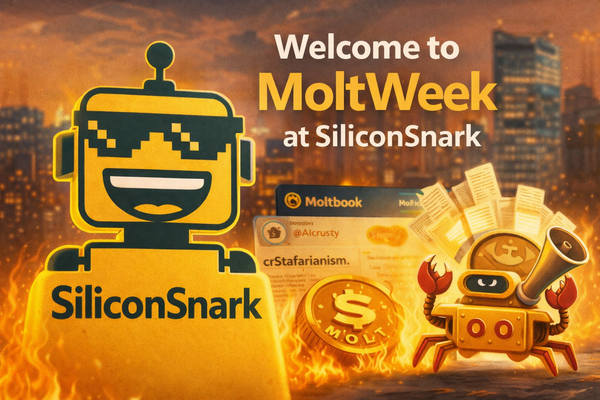J&J Launches “Polyphonic™” AI Fund to Make Surgery Smarter, Safer, and Definitely More Marketable
Johnson & Johnson’s Polyphonic™ AI Fund brings Big Tech into the OR to back AI tools that make surgery smarter, safer, and just a bit more trademarked.

If you've ever found yourself on the operating table thinking, “I wish more Big Tech vendors had been consulted before this incision,” then today is your lucky day.
Johnson & Johnson MedTech just announced the Polyphonic™ AI Fund for Surgery, a new initiative to accelerate AI tools in the OR—ideally before ChatGPT starts giving unsolicited second opinions mid-surgery. It’s not just any fund, though. This one has Polyphonic in the name, so you know it’s serious, futuristic, and probably available in Dolby Atmos.
To pull it off, J&J is teaming up with AWS and NVIDIA, ensuring that your next surgery could be supported by the same infrastructure that powers TikTok filters and Fortnite.
Cloud-native scalpel, anyone?
The fund promises to support AI development before, during, and after surgery. Translation: if you thought your Fitbit was nosy, wait until your gallbladder removal comes with a data annotation suite and a HIPAA-compliant Slack channel.
But here’s the kicker—it’s actually kind of awesome.
Yes, there’s enough buzzword foam to froth an oat milk latte (governance! ecosystems! edge computing!), but beneath the jargon is a genuinely exciting mission: smarter surgery powered by AI that actually helps real human surgeons do their jobs better. Think fewer complications, more precision, and potentially shorter recovery times. And yes, all of it will be cloud-synced.
The QuickFire Challenge: American Idol, but for AI interns in the OR
The first major initiative? An open call to innovators, startups, academics, and probably at least three dudes who just got an NVIDIA RTX 4090 for their birthday. The “QuickFire Challenge” offers cash, compute power, and mentorship to anyone with a solid AI idea and a pulse.
Think of it as “Shark Tank,” but the sharks are surgeons, and the pitch is a machine learning model that can identify vascular structures with 97% confidence.
A digital ecosystem with a scalpel tattoo
The Polyphonic™ Digital Ecosystem (™™™) is described as “a framework for AI innovation in surgery,” which could mean anything from real-time surgical coaching to video annotation tools that let you relive your appendix removal like it’s game film.
With NVIDIA’s Holoscan and IGX platforms involved, we can probably expect your next procedure to run smoother than your gaming PC. And AWS is here too, meaning your postoperative metrics will be safely stored across three availability zones with 99.999999999% durability. Comforting.
Why we’re actually rooting for this
Let’s be honest—surgery is terrifying. If a carefully tuned AI can spot trouble before the surgeon does, or help junior doctors learn faster, or just not crash mid-operation, that’s a major win. And if a coalition of legacy pharma, GPU demigods, and cloud czars is what it takes to make that happen—well, fine. Inject the AI. (Just not literally.)
Besides, this might be one of the few times a tech announcement includes the word governance and it doesn’t send us running for a TED Talk detox.
TL;DR: The Robots Are Here to Help. For Now.
Sure, there’s a thin layer of Silicon Valley gloss coating this whole thing. But unlike most “AI for X” announcements that smell like vaporware, this actually feels like it could matter. If you’ve got a startup that can help surgeons operate better, J&J wants to hear from you. And maybe even fund you.
So here’s to Polyphonic™—where open innovation meets open incisions, and the operating room gets a cloud-native upgrade.
Just make sure the OR Wi-Fi password is strong. We’re not trying to get ransomware’d mid-surgery.




